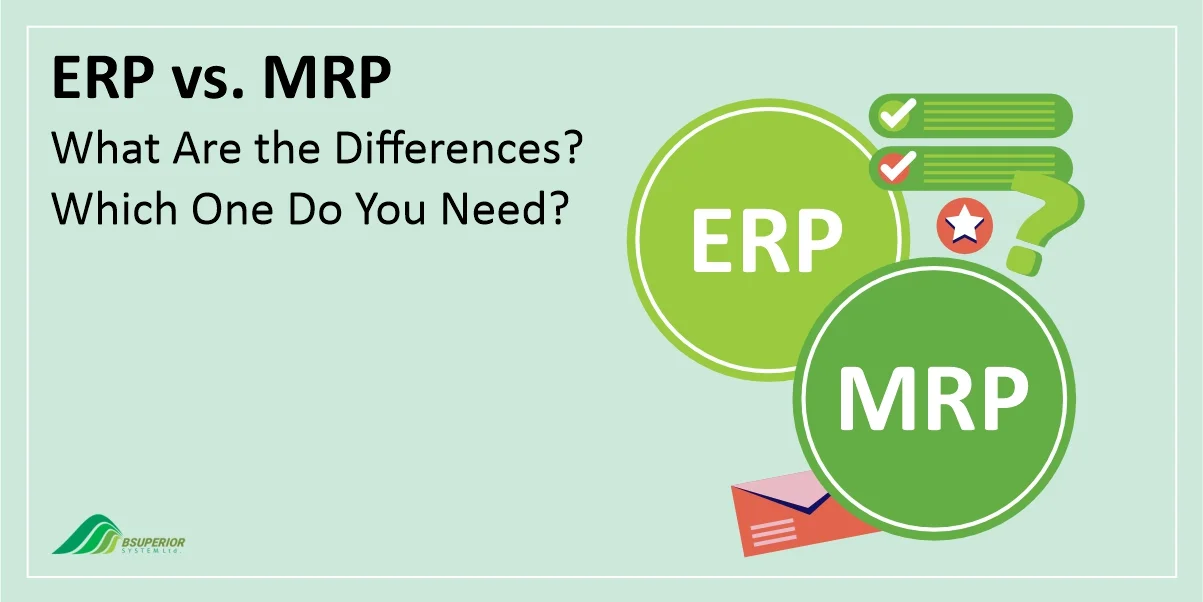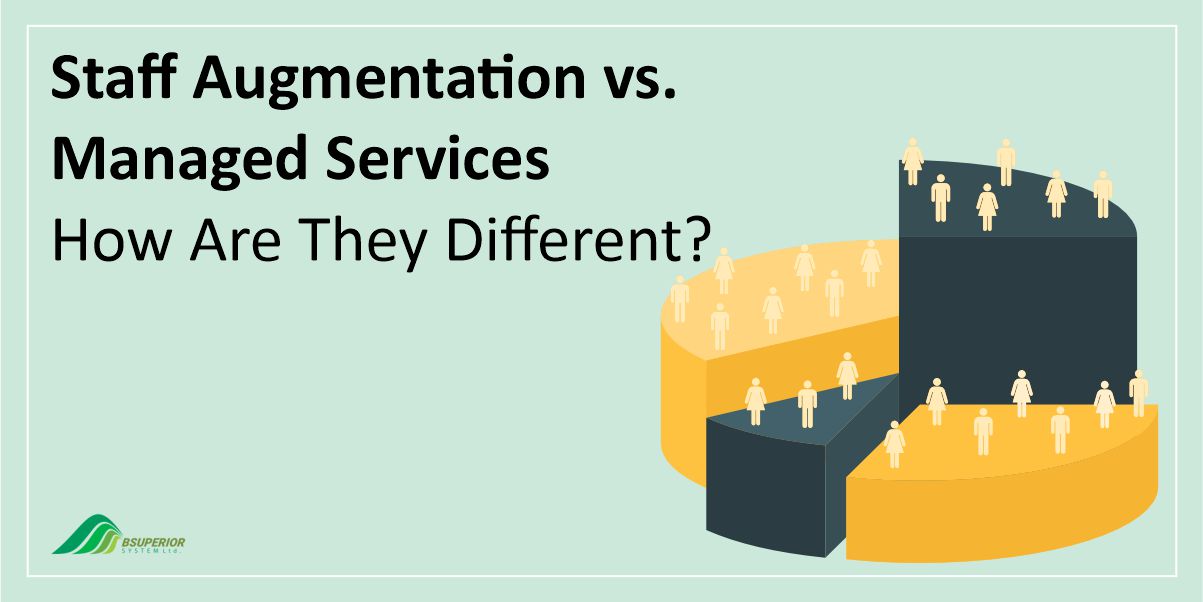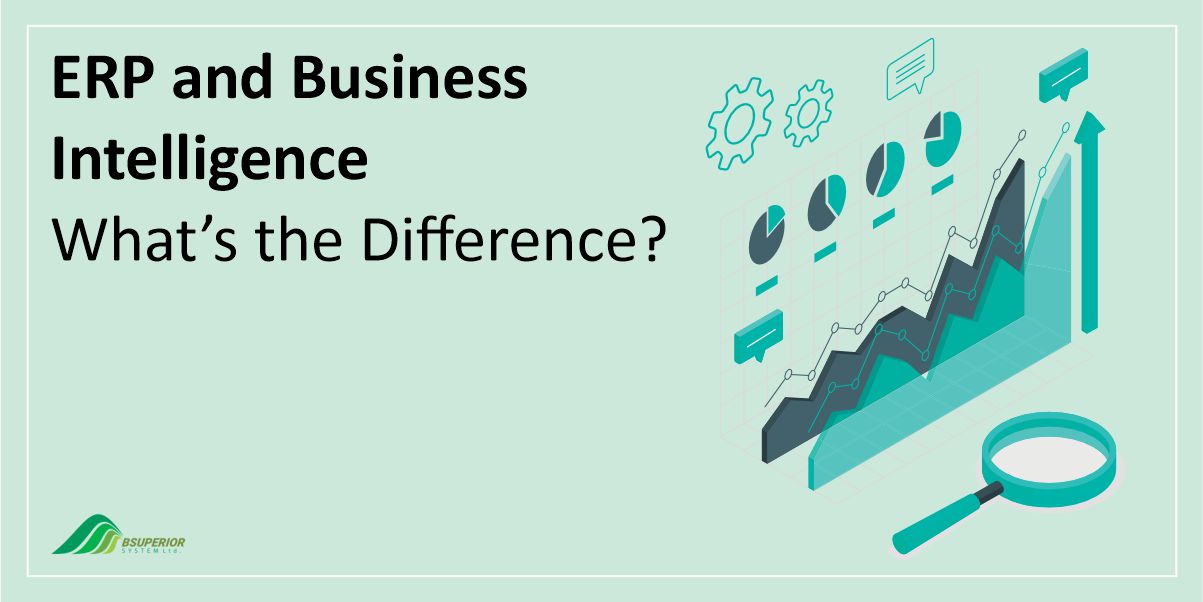ERP vs. MRP: What Are the Differences and Which One Do You Need?

ERP and MRP are two important systems that are connected and can work together. However, they have different features and goals that any business should take into account.
So, if you’re looking for new software but don’t know what to choose, this blog post is for you. We will give you a clear overview of ERP and MRP, their advantages and drawbacks, and how to select the best system for your business goals.
What is ERP?
Enterprise Resource Planning (ERP) software is a system that connects and streamlines various business operations in one place. For manufacturers, this includes managing inventory, buying, planning production, selling, accounting, and more.
ERP aims to offer a single solution for all business activities, enabling efficient data sharing and real-time data analysis. It helps you not only improve your manufacturing processes but also extend those advantages to other parts of your organization.
The idea is to have your whole company use the same system to simplify workflows, reduce manual work, and increase efficiency in all business areas.
What is MRP?
Material Requirements Planning (MRP), on the other hand, is a system that helps you plan and control your production process and inventory.
MRP uses information from the bill of materials (BOM) and the production schedule to calculate the amounts and timing of materials required for production.
It also helps detect potential inventory gaps and surpluses and modifies production plans accordingly. Basically, MRP helps you figure out what you need to buy or make to ensure manufacturing can meet demand effectively. Like ERP, it helps you enhance your production processes, focusing on inventory prediction and material management.
Read More: ERP VS. CRM: WHICH IS THE RIGHT ONE FOR YOU?
ERP vs. MRP: What Do They Include?
ERP Tool List and Features
An ERP system is made up of individual ERP components that work together. A few modules may be enough for a small business in its early stages, but it can always expand its ERP system by adding new modules as needed.
The most common ERP modules are:
- Finance: This module automates accounting, financial reporting, and income and expenses tracking for businesses.
- HR Management: This system helps businesses manage payroll and attendance.
- Sales: This module tracks leads, client interactions, targets, and performance for sales businesses. It also automates the management of sales transactions, from billing to contracts, and provides data and insights on sales goals and achievements.
- Supply Chain and Logistics Management: This module helps manufacturing businesses manage their inventory and materials on time. It also handles the management of goods and inventory.
- Manufacturing: This module simplifies complex manufacturing processes, such as production planning and quality control.
MRP Tool List and Features
An MRP helps business owners prepare for the future. It helps them adjust to changes in demand and supply. MRPs monitor information such as the expiration dates of materials, delivery times, and the availability or shortage of materials from suppliers or in transit.
The main tasks of MRP are:
- Forecasting: MRP systems use projected sales and production to figure out the materials, parts, and supplies needed for production.
- Inventory Management: MRP systems control inventory to make sure there are enough materials, parts, and supplies.
- Production Scheduling: MRP systems make and optimize production schedules, creating the best order of production based on factors such as the materials available, materials needed, supply times, and any expiry dates. This helps companies minimize waste by using each material to its maximum potential.
- Order and Stock Tracking: MRP systems track the status of orders for materials and supplies and keep the schedule updated. The system also tracks when items need to be reordered and can order them automatically to ensure materials are always in stock.
ERP vs. MRP: How Do They Differ?
ERP is a wide system that handles processes across the business, while MRP is a more specific system concentrated on production planning and inventory management. Apart from that, there are four major differences between ERP and MRP.
- Integrated Solutions vs. Stand-Alone Software: MRP software is a stand-alone application that only handles your manufacturing needs. Many of these solutions work well, but the data in the system is separate from the rest of the organization.
Some MRP systems can work with other software, but it’s not always simple. An ERP system, on the other hand, is designed to be integrated. - Scope of Functionality: While MRP only deals with manufacturing and inventory, ERP does everything. Think of all the important parts of your business and how you manage them now. An ERP solution replaces those systems and gives you one place to manage everything.
You’ll see that most modern ERP solutions have MRP as a part of the bigger system, so you can still enjoy the benefits of MRP without needing a separate system. - User Groups: As MRP systems only have manufacturing features, your users will only be those who manage your production and inventory. Those users would also use your ERP system, but so would many others in your organization.
There’s a clear benefit here that all your teams can easily access information from other parts of the organization. But it also makes employee training and onboarding easier because you have one main system to learn.
It may not sound important, but with a single integrated system, your processes will be much smoother and your people will learn faster. - System Cost: When you compare the features of each solution, it’s obvious that an MRP system is cheaper. But don’t let cost be your only deciding factor.
Think about what you really need to make your business better and bigger. Especially for fast-growing companies, the higher cost of ERP software is worth it to see a bigger return on investment across many business areas.
Read More: BENEFITS OF ERP IN HEALTHCARE [TO 6 BENEFITS
ERP vs. MRP: How Are They Similar?
ERP and MRP have many things in common such as:
- Improving Business Process: ERP and MRP systems are made to automate business processes to make them more efficient and less error-prone in daily operations.
- Data Sources: Both of the systems use data from different parts and functions of a business such as inventory, production, sales, and customer data.
- Modules and Features: ERP and MRP offer similar features such as inventory and supply chain management.
- Collaboration: Both systems can help companies improve internal communication and teamwork between different parts.
- Similar Technologies: Both ERP and MRP use similar technologies such as cloud computing and software applications.
Is MRP a Type of ERP?
ERP systems developed for manufacturers have MRP included as a module. This allows them to use the important functions, features, and capabilities of MRPs, and also the wider functions of ERP systems.
Today’s ERPs are indeed very adaptable and can fit your specific business needs. ERP vendors offer many tools, features, and functions, made for the different needs and problems of different industries.
ERP vs. MRP: Overview
Both ERP and MRP have their pros and cons, depending on your business needs and goals.
| ERP vs. MRP | ERP | MRP |
| Solution Architecture | A software that integrates with other software | A software that works alone |
| Integration Capabilities | Easy to connect with other software systems and modules | Hard to integrate with other software |
| Scope of Operation | Works for many industries and manages all business functions | Only works for manufacturing operations |
| Users | Has many users in different departments | Only has users in the production department |
| Cost | More costly | More affordable |
ERP Pros
ERP systems offer many benefits to businesses, especially those with complex operations. Here are the main advantages:
- Better Customer Service: ERP systems give a unified view of customer data, enabling customer service teams to answer inquiries quickly, increasing customer satisfaction, and creating a positive customer experience.
- Process Improvement: ERP systems remove manual data entry and improve accuracy, saving time and money and ensuring data quality.
- Better Insights: ERP systems provide real-time operational insights that help businesses make smart decisions and improve overall performance.
- Scalability: ERP systems can scale up easily to support business growth without extra software, saving time and resources during operational expansion.
Learn More: BEST ERP SOFTWARE FOR THE SMALL MANUFACTURING INDUSTRY
ERP Cons
Despite the advantages, ERP systems can have a number of shortcomings such as:
- ERP systems are often hard to use and understand, requiring a lot of training and resources for installation and management.
- ERP systems can be costly and slow to integrate. These systems may also be slow to react to market changes, possibly making companies fall behind their rivals.
- ERP systems may also face cyber attacks, creating a security risk. Businesses must defend their data and systems strongly against possible harmful attacks.
MRP Pros
MRP systems provide businesses with several important benefits. These are:
- Smart Production Planning: The software helps manufacturers plan well for materials, labor, equipment, and other resources to run the production process well.
- Good Inventory Control: MRP systems help manufacturers understand and manage their inventory better, making sure supervisors can re-stock important materials and supplies.
- Better Purchase Planning: By knowing the inputs and outputs of the business, supervisors can improve their purchase planning and prediction.
- Better Data Management: In today’s world, manufacturers make and use a lot of data. MRP systems help businesses manage and use this data well to find and fix problems and make the production better.
MRP Cons
MRP systems have some disadvantages, including:
- Functionality Can Change: Like any business software, there can be a lot of differences between different platforms. Businesses need to spend time knowing their needs and finding the best solution for them.
- Careful Data Input Needed: MRP systems only work well with correct data. Making sure shop floor data is right can be hard for some manufacturing operations.
ERP vs. MRP? Can They Be Integrated?
Given that many ERP systems include MRP features and functionalities, a business can gain from integration. By combining ERP and MRP systems, an organization can share and cooperate information across all other departments.
Integrating ERP and MRP will provide businesses with a number of important benefits.
- Improve Business Operations: Manufacturers always balance supply and demand. But in today’s world, spreadsheets won’t work for managing operations. You need automated tools to help you grow operations and business.
With ERP and MRP systems together, you can automatically figure out quantities and dates for orders. You’ll have all your transactions in one place. You can also let your vendors see real-time order information to keep them updated and avoid order problems. - Keep Up With Demand: Manufacturers with many suppliers, products, vendors, and customers need a smooth supply chain to stay on track. For that, you need business software that shows you sales, orders, and everything else.
ERP systems can show you supply and demand in real time so you can decide well when things change. By using that data with an MRP system, you can forecast demand well to reduce problems and use materials well.
These solutions can automate things like turning quotes into orders, and even filling up products as needed to keep up with changing demand. - Go Beyond Customer Experiences: Customer service is very important for manufacturing. Today, customers want more than ever. They want connected, personal experiences with easy communication at every step.
With a system that combines your ERP and MRP solutions, you can give customers real-time messages about orders and deliveries. And make the experience personal from buying to delivery.
ERP vs. MRP: Which One Should You Go With?
Choosing an ERP or MRP system depends on several factors. If your company only needs help with manufacturing and inventory, an MRP system may be enough. If your business needs more integration to handle more processes, an ERP tool may be better.
Your business processes, budget, and more will decide which technology is right for you, but there are several points to consider that can help you with this decision. These considerations are:
- Which business operations do you want to improve? If you only want to make manufacturing better, that’s what an MRP system is made for. But if you want to improve, automate, and link processes beyond manufacturing to accounting, human resources, and more, you’ll need ERP software.
- How much can you spend on software? MRP systems are cheaper because they are simpler. To spend money on an ERP system, you’ll need to think about what it can do for your business and how it will affect your profit and growth.
Many companies that buy an ERP system find that it makes their business operations so much better and faster that it pays for itself. - Is your company growing fast? A company that is growing a lot will need more automation and smooth processes to succeed and keep up. This needs an ERP system. However, if your company is not changing much, you may only need an MRP tool.
Final Words
ERP and MRP are both useful systems that can help you run your business more efficiently and effectively. However, they are not interchangeable or identical.
The main question is if you need help with more than manufacturing. While MRPs only deal with manufacturing, ERPs have more solutions like accounting, project management, business intelligence, sales, and customer relationship management.
You need to understand the differences between them and choose the one that suits your business needs best.
We value your input and believe this content may enhance our services. However, it's under review. If you see room for improvement, please use the "Report an issue" button below. Your feedback helps us excel.
Contact us today at –– and speak with our specialist.

![Offshore Software Development: Pros and Cons [Expert Guide]](https://bsuperiorsystem.com/wp-content/uploads/2024/04/Offshore-Software-Development.jpg)

![IT Staffing: All You Need to Know [Benefits]](https://bsuperiorsystem.com/wp-content/uploads/2024/04/IT-Staffing.jpg)
